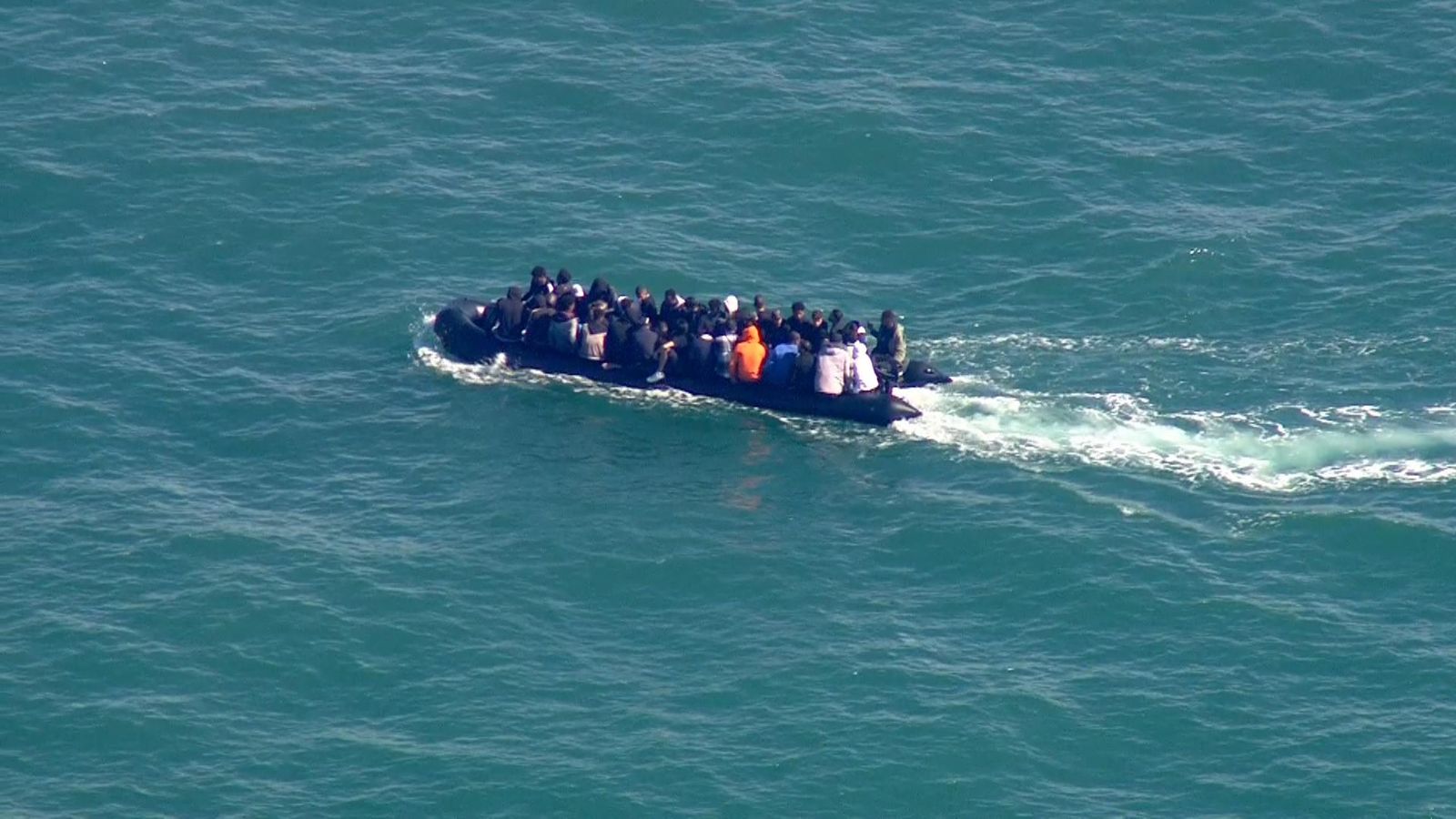There have been no migrant Channel crossings this Christmas, for the first time since records began five years ago.
No Channel crossings took place on Christmas Eve, Christmas Day or Boxing Day this year, according to the Home Office.
It means there have now been 10 consecutive days without any arrivals recorded.
Poor weather conditions are likely to be contributing to the pause in activity.
Earlier this year, Prime Minister Rishi Sunak put tackling the surge in small boat crossings at the top of his to-do list, pledging to pass a new law to “detain” and “swiftly remove” any migrants who arrived.
The latest journey, on 16 December, saw just one boat carrying 55 people make the journey to the UK from France.
Last year, 90 arrivals were recorded on Christmas Day, with none on Christmas Eve or Boxing Day.
Almost 300 people make English Channel boat crossings in single day
Rishi Sunak wins Rwanda vote: What happens now?
How did your MP vote on the Rwanda bill?
It was a similar pattern in 2021, with 67 arrivals on 25 December but none on 24 or 26 December.
Both 2020 and 2019 saw no action on Christmas Eve or Christmas Day, but there were crossings on Boxing Day, with seven and 49 arrivals respectively.
In 2018, there were no arrivals on Christmas Eve, 45 on Christmas Day and three on Boxing Day.
The number of crossings this year is 36% down compared to this time last year, with the provisional total for 2023 still lower than 30,000, PA news agency analysis shows.
In 2022, a record 45,774 people arrived in the UK after making the journey, but this year’s total so far stands at 29,437.
Last week, Rishi Sunak said there was no “firm date” for meeting his pledge to “stop the boats” when facing questions from MPs.
Appearing before the Commons Liaison Committee, he was also unable to say when he would clear the backlog of asylum claims, which stood at 109,442 cases at the end of November.
Mr Sunak pledged to clear the backlog of so-called “legacy” cases, those made before 28 June 2022, by the end of 2023.
The “legacy” backlog has fallen by nearly three-quarters since June 2023, reaching 18,366 by the end of November.
Asked whether he would meet his pledge, Mr Sunak said: “We’re not at the end of the year yet, so the final statistics haven’t been published, but we are making very good progress.”
The rest of the backlog – those applications made on or after 28 June 2022 – continues to rise, reaching 91,076 at the end of November.
Asked when the overall backlog would be cleared, the prime minister declined to give a date, saying: “We haven’t set a target for that publicly but obviously the priority was clearing the initial legacy asylum backlog.”
Earlier this month, Mr Sunak survived a crunch vote on his plan to deport migrants to Rwanda, with the bill due to return to the Commons next year.







